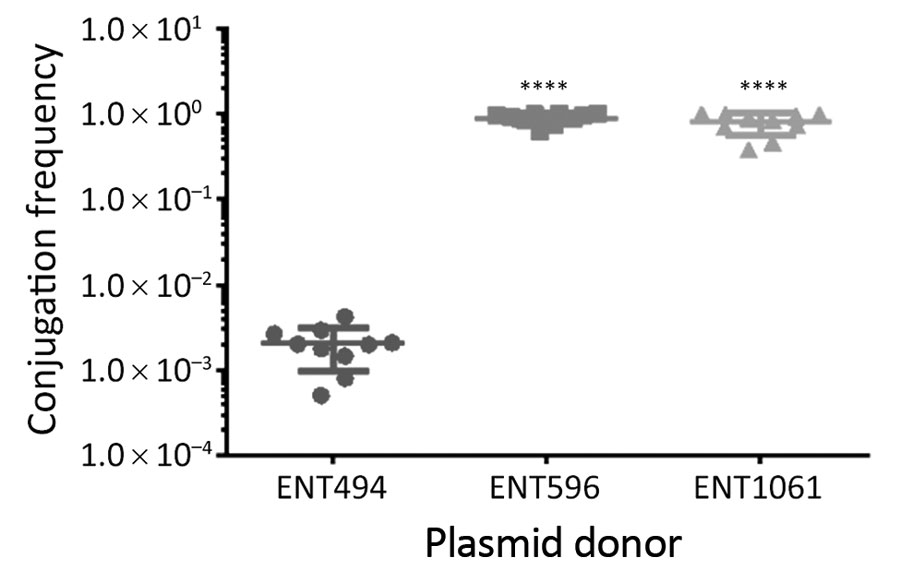Volume 26, Number 3—March 2020
Research
Acquisition of Plasmid with Carbapenem-Resistance Gene blaKPC2 in Hypervirulent Klebsiella pneumoniae, Singapore
Figure 5

Figure 5. Conjugation ability of pKPC2 from carbapenem-resistant hypervirulent Klebsiella pneumoniae isolates, Singapore, 2013–2014, to Escherichia coli SLC568. Filter matings were performed for 4 h. The conjugation frequency is the number of CFUs of transconjugants divided by the number of CFUs of recipients. Each symbol represents the value for an individual clone (n = 10) from 3 independent experiments. Horizontal bars indicate means and error bars SD. KPC, Klebsiella pneumoniae carbapenemase. ****p<0.0001.
Page created: February 20, 2020
Page updated: February 20, 2020
Page reviewed: February 20, 2020
The conclusions, findings, and opinions expressed by authors contributing to this journal do not necessarily reflect the official position of the U.S. Department of Health and Human Services, the Public Health Service, the Centers for Disease Control and Prevention, or the authors' affiliated institutions. Use of trade names is for identification only and does not imply endorsement by any of the groups named above.